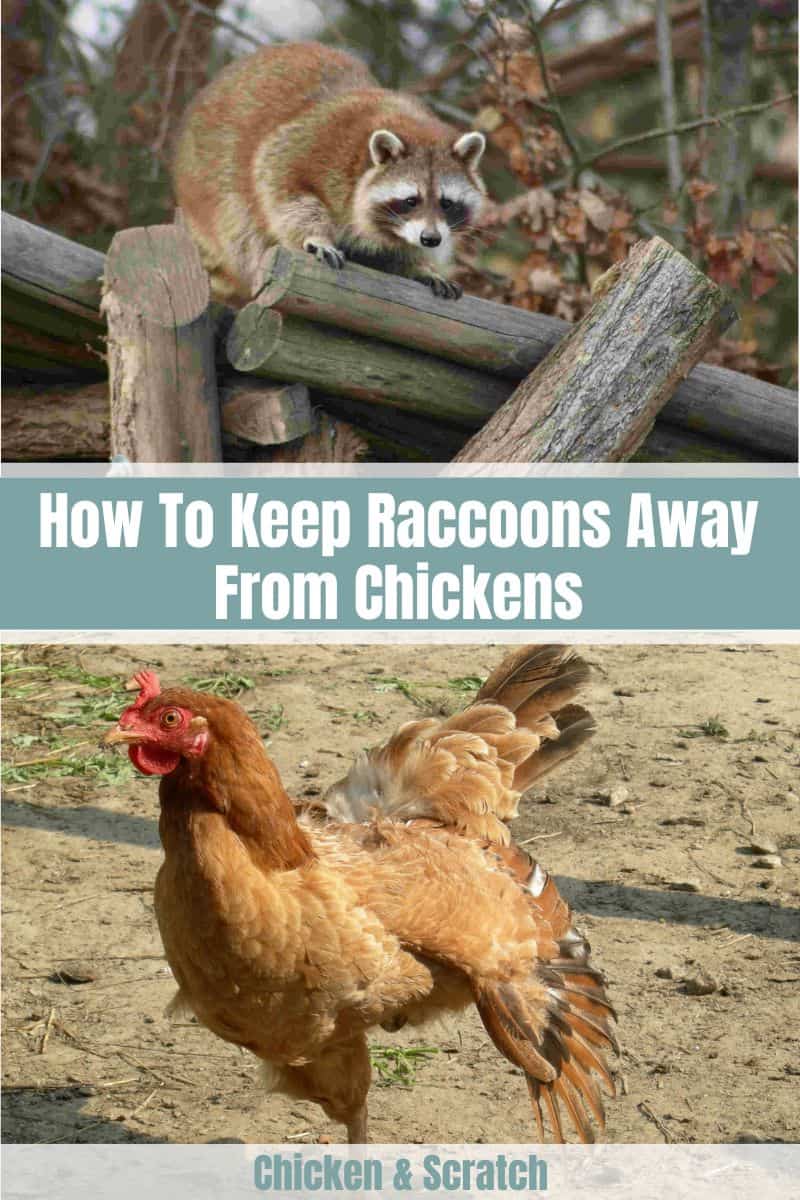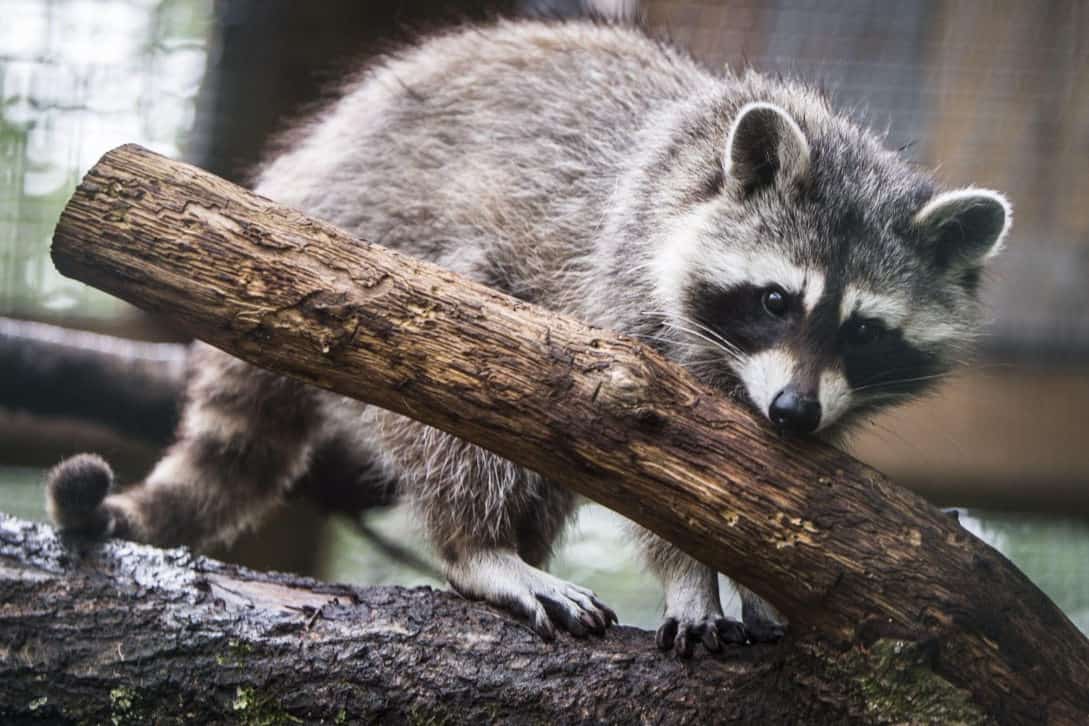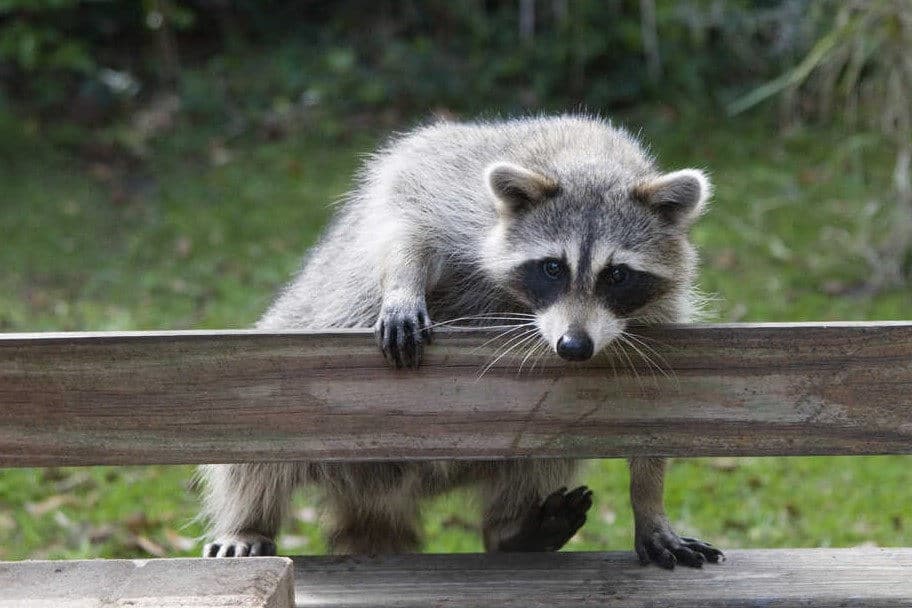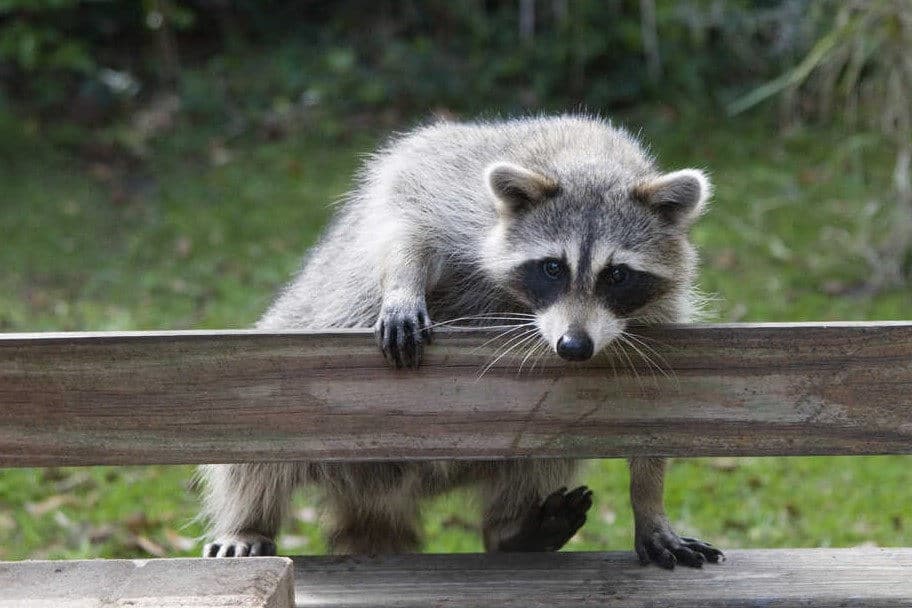Raccoons see your chickens as a delectable meal. So like any hungry omnivore, they’d go to any length to get to your pets. As your flock’s primary caregiver, you are responsible for keeping them safe. You can try simple and effective ways to protect your birds from these mischievous animals. Read on to learn how to keep raccoons away from your chickens.

Why do you Need to Protect Your Chickens from Raccoons?
Raccoons can ruin your whole poultry operation. It’s frightening how it’s easy for them to harm your small and defenseless birds. They can go inside the nesting area, consume the eggs, and even harm the hens. These creatures can also carry disease-causing viruses and parasites that can affect both chickens and humans.
What kind of predators are raccoons?
Raccoons are clever predatory animals. They can get to your chickens by climbing fences and walls or digging under barriers. They are extraordinarily dexterous and can open locks and stick their paws through usually unpenetrable wire mesh fencing.
If a raccoon finds its way inside the coop, it will kill several chickens. The “crime scene” would be grisly as they would leave dead bodies lying around. They only eat birds’ insides and perhaps a portion of the chest.
How can raccoons harm chickens?

Raccoons can harm chickens by attacking and killing them for food. They steal their eggs and wreak havoc inside the coop. These masked bandits can also carry diseases that can infect chickens, such as avian influenza and salmonella. Additionally, raccoons can damage chicken coops and other structures, making it easier for them to make their mischief again.
What are the signs that raccoons are nearby?
The following signs can tell you if raccoons are nearby:
- Distinct footprints: four toes on their hind feet and five toes on their front feet
- Stinky scat: cylindrical piles of small, dark, and glossy poop
- Tracks: reveal the shape of their claws and feet
- Damage: forced-open trash cans, damaged electrical wiring, and scattered pots and planters
- Noises: hissing, chattering, and growling noises, usually at night
- Sightings: seen near water sources or rummaging through trash cans, or climbing trees
How can raccoons find your chickens?
Being omnivorous animals, raccoons may locate hens using their senses of hearing and smell. They may quickly penetrate poultry cages and coops since they are excellent climbers. Additionally, they have pointed teeth and claws that enable them to pierce weak or inadequately protected structures. They can be opportunistic eaters as well, so they will look for food sources like chicken feed that can lure term into the chicken coop.
How to Secure Your Coop
Raccoons are known to be ardent predators. They won’t give up until they get to the jackpot -your coop. Their exceptional dexterity also makes the job easy for them and challenging for you. These are the reasons why you need to fortify your coop. Your chicken’s shelter will serve as an impenetrable fortress protecting them from the sly raccoons.
Here are the ways you can create a safe space for your chickens:
To keep the raccoons from accessing your coop, you may use these techniques to strengthen their home’s structure.
Method 1: installing a heavy-duty wire mesh
To make it harder for the masked bandits to penetrate the coop, think about using a wire mesh with 1-inch holes. Ensure you use galvanized steel or other heavy-duty materials for a longer-lasting structure.
Method 2: clinching the edges
It is crucial to secure the edges because raccoons may easily grab them. They will use the mesh wall to climb into the coop. It’s recommended to use metal flashing to cover the mesh’s edges. Then, you fasten them to the coop’s frame.
Method three: plant the mesh into the ground
To stop raccoons from burrowing under the wire mesh, bury it at least a foot into the soil. Creating a solid foundation for your coop prevents them from gaining a foothold to scale their cage.
Method four: utilizing a hardware cloth
You may use a hardware cloth or a coop apron to reinforce the wire mesh. These sturdy materials add more strength, especially if you fasten it to the inner side or wrap it around the outer part.
Method five: fastening the roof
Attach the roof securely to the mesh wall to prevent raccoons from accessing the top of the shelter. Raccoons are skillful climbers and would not flinch at heights.
Method six: installing a heavy-duty latch
An industrial-grade padlock and clasp can effectively keep raccoons out of your chicken’s home. Another option is to install a spring-loaded bolt latch inside the coop. Since it’s designed to lock automatically when the door is closed, you won’t have to worry about forgetting to close it.
How to Keep Raccoons Away Using Home Remedies

Aside from creating an impermeable coop, you can also utilize things from your home to deter raccoons. They are easily available and won’t harm your chickens.
Use household products
Do you know that your home holds many items you can use to deter raccoons? Please note that raccoons are resourceful and persistent creatures. What works for one coop may not work for another. You may have to use two or more deterrents to ensure their effectiveness. It’s also a great idea to try different methods until you find what works best for your flock.
- Ammonia: raccoons hate the smell of ammonia, so placing rags soaked in the chemical and placed near the coop will keep them out.
- Hot pepper sauce: raccoons will not go near the coop when you spray hot pepper sauce or a mixture of hot sauce and water around the coop’s perimeter.
- Human hair: raccoons strongly detest human scent, so placing clumps of human hair near the coop prevents them from getting near the area.
- Motion-sensor lights: installing motion-activated lights near your flock’s home can scare raccoons and prevent them from invading the coop.
- Noise-making gadgets: devices such as wind chimes, alarms, and radios create noise that can also scare off raccoons.
Placing a scarecrow
A scarecrow can be great at preventing raccoons from going into the chicken coop. However, it’s just a temporary remedy, so match it with other techniques. It can effectively buy you time while you’re preparing other deterrent methods. But don’t rely on it for all the work.
We know that raccoons are adaptable and clever predators. They will eventually learn that the scarecrow will not harm them at all. Once they become used to the scarecrow, they may ignore it and continue to sneak into the coop. It can be a great idea to use multiple scarecrows that you rotate to keep the raccoons guessing.
Proactive Ways to Keep Raccoons Away
You can do proactive measures so that predators won’t be attracted to your bird’s area in the first place. Make your chicken coop and the surrounding areas unattractive to raccoons. You can do the following to make it as scary and challenging as possible.
Secure the coop
Make sure all windows and doors are properly latched. Use heavy-duty hardware and choose a latch that is difficult for them to manipulate. Pretty soon, these animals will give up and look for other food sources.
Elevate the coop
Raccoons are incredibly skillful climbers, so raising the coop a few feet off the ground will make it more difficult for them to climb.
Remove food sources
Avoid storing feeds or water inside the coop as they may attract the raccoons. Always clean up any food debris or spills from around the enclosure. Removing traces of food discourages predators from visiting.
Keep their feeds in a sealed container
Store the chicken grub away from the coop and keep them in a sealed container. Raccoons have highly sensitive olfactory senses. They will make a mess in your storage area once they get their hands on the food.
Raising a guard dog
A guard dog can effectively deter raccoons from entering your chicken coop. A properly socialized and trained guard dog can help protect your flock by barking and scaring off those impish predators. However, it’s important to choose the right breed of dog for the job. Remember that not all dogs can step up to the challenge. You can consider breeds such as the Great Pyrenees, the Komondor, or the Anatolian Shepherd. These dogs are known for their protective instincts and uncanny ability to deter predators.
It’s also vital to note that a guard dog is only as effective as its training. You must regularly train your loyal guards to help them develop raccoon-deterring instincts and skills. Lastly, you’ll ensure that your guard dog is well-socialized with humans and animals to ensure that it doesn’t become unpredictable or aggressive.
Conclusion
Raising chickens has its own share of challenges. One problem is a raccoon’s infiltration. These clever but pesky animals can injure or kill your pets. They can spread disease to your flock, also affecting their human caregivers. The good news is you can prevent them from taking over your farm. Just follow the techniques on how to keep raccoons away from chickens.

Joseph Hudson has been raising chickens for over 15 years. In 2018, he completed the Agriculture & Natural Resources program at Mt. San Antonio College. He currently raises over 1400 chickens on his 7.5-hectare farm. He keeps sharing his experience on raising healthy and happy chickens on Chicken Scratch The Foundry.







